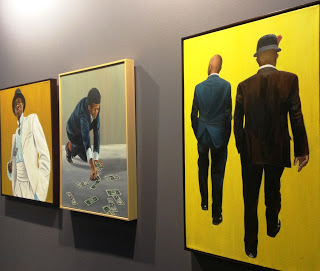By Lisa Vives, Global Information Network NEW YORK (IDN) – A New York-based university professor jailed for his writings critical of President Paul Biya of Cameroon has been released from prison after an outpouring of support from free speech activists, students and academics around the world. Stony Brook professor Patrice Nganang, who has dual citizenship […]
Eritrean Refugees in the Netherlands Want Ban on Diaspora Tax by Asmara
By Reinhardt Jacobsen and Klara Smits AMSTERDAM | BRUSSELS (IDN) – Hundreds of Eritreans have been taking to the streets in various cities and refugee camps all over the world against the Eritrean regime to express solidarity with the unusual protests that took place in Asmara, the country’s capital, on October 31. The latest in […]
Dutch Court Rules Against ‘Center of the Eritrean Intelligence Network’
By Martin Plaut* AMSTERDAM (IDN-INPS) – In 2015, Dutch professor and human rights advocate Mirjam van Reisen was interviewed by Dutch radio station ‘BNR Nieuwsradio‘ about people with ties to the Eritrean regime being employed as interpreters at the Dutch Immigration and Naturalisation Service (IND). Van Reisen is professor at the Tilburg University and Leiden […]
Sparkle of Hope Fast Disappearing in Post-Mugabe Era
By Jeffrey Moyo HARARE (IDN) – When Robert Mugabe resigned late November as president of Zimbabwe, hopes were rekindled that the country would finally be set on the course of a fresh start after 37 years of widely criticised authoritarian rule of this Southern Africa nation. For years, under Mugabe’s regime, the Southern African nation’s state […]
World Bank Explains Uganda Benefits of Ending Child Marriage
By Ronald Joshua NAIROBI (IDN) – With a new report, the World Bank is striving to put an end to child marriages in Uganda deploying a carrot-and-stick approach. Subsequently, the report titled ‘Accelerating Uganda’s Development: Ending Child Marriage, Educating Girls‘ argues that ending child marriage could generate $3 billion per year for the East African […]
Galleries, Fairs Offer African Art Feast in Paris
By SWAN PARIS (IDN-INPS) – Fans of African art in France have been spoilt for choice this year, with an abundance of exhibitions around the country, particularly in the capital Paris During the spring, Art Paris Art Fair featured Africa as its “guest of honour”, with works from all over the continent, while the Louis Vuitton Foundation […]
The Challenge of Making Africa’s 830 Million Young People ‘Effective Citizens’
By John Dramani Mahama and Siddharth Chatterjee John Dramani Mahama is the former President of the Republic of Ghana. (Follow him on twitter.) Siddharth Chatterjee is the UN Resident Coordinator to Kenya. (Follow him on twitter.) ACCCRA | NAIROBI (IDN-INPS) – In July 2017, Spanish charity workers rescued 167 migrants arriving from Africa aboard a small boat. 2016 was the deadliest […]
Opposition Calls for International Solidarity with Eritrea After Rare Protest
By Wim Brummelman
Note: This report, based on an interview with a representative of the opposition Freedom Friday (‘Arbi Harnet’) in Asmara, Eritrea, was first published in the Dutch newspaper NRC on 7 November 2017. Following is its unofficial translation by Klara Smits. – The Editor.
AMSTERDAM (IDN-INPS | NRC) – The banned Eritrean opposition is asking the international community to pay attention to the continuing repression in Eritrea. “Foreign countries must send observers to find out what is happening here,” said an opposition member speaking over the phone from the Eritrea’s capital city Asmara.
Rescue Operation in Mediterranean Fails to Save African Teenage Girls
By Lisa Vives, Global Information Network
NEW YORK | ROME (IDN) – Shivering immigrants pulled from icy Mediterranean waters huddled under aid workers’ blankets hardly move the hearts of wealthy nationals in developed countries these days.
But the story of 26 young African women whose bodies were recovered near a smuggler’s boatload of migrants caused some heads to turn and tears to fall.
Their bodies were plucked from the sea on November 5 in one of four separate rescue operations that brought 400 people to the Italian port town of Salerno.
Charities Facing Closer Scrutiny over Sex Harassment and Graft Claims
By Lisa Vives, Global Information Network
NEW YORK (IDN) – Two well-known charities are responding to serious claims of misappropriation of money and sexual harassment during their work in Africa.
In one investigation by the Associated Press, the Red Cross was cited for faulty oversight of workers who may have stolen millions of dollars meant to combat the Ebola outbreak in West Africa.
The deadly Ebola virus that spread throughout West Africa from 2014 to 2016 killed more than 11,000 people and drew numerous aid workers and medical professionals to the continent. Some of those responders, according to a Red Cross internal investigation covered by AP, fraudulently used funds earmarked for aid. Total losses due to fraud topped $6 million, AP claimed.










